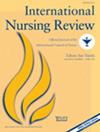Nursing Leadership and Policy Implications: Insights From St. Kitts and Nevis
Abstract
Aim
To analyze the contributions, challenges, and strategies for improving healthcare by past and present nursing leaders in St. Kitts and Nevis.
Background
St. Kitts and Nevis has made significant progress in healthcare delivery despite limited resources and geographical isolation. Nursing leaders have performed a critical role in the establishment of a preventative-focused, community-based healthcare system. However, little is known about their contributions, as no previous studies have been conducted on the role of nursing leadership in the region's healthcare transformation.
Methods
Qualitative interpretive phenomenological and historical methods were used to analyze historical documents and conduct 45 in-depth semi-structured interviews with nursing leaders. Colaizzi's (1978) seven-step method and the COREQ EQUATOR reporting guidelines were used to analyze and report findings.
Results
Eleven significant themes emerged from data: historical leaders, leadership characteristics, international collaboration, the need to invest in infrastructure, lack of respect and slow advancement, a severe nursing shortage, limited resources, and the need for advocacy.
Discussion
These findings demonstrate nursing leaders’ critical role in improving healthcare outcomes despite significant barriers through collaboration, policy development, and investments in nursing education
Implications for nursing policy
This study provides insight into the accomplishments and challenges of nursing leaders in St. Kitts and Nevis and provides a foundation for future research on nursing leadership in similar settings. This research highlights the need for policies and international partnerships that advance nursing leadership capacity.

 求助内容:
求助内容: 应助结果提醒方式:
应助结果提醒方式:


